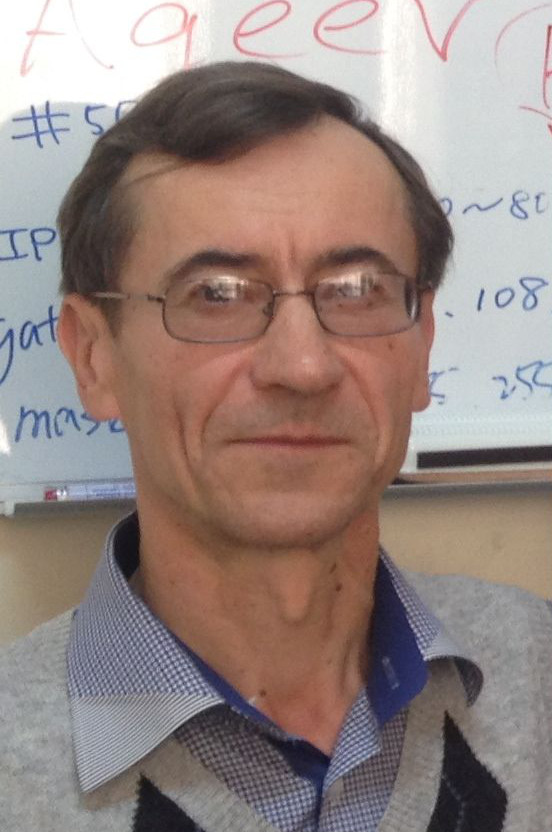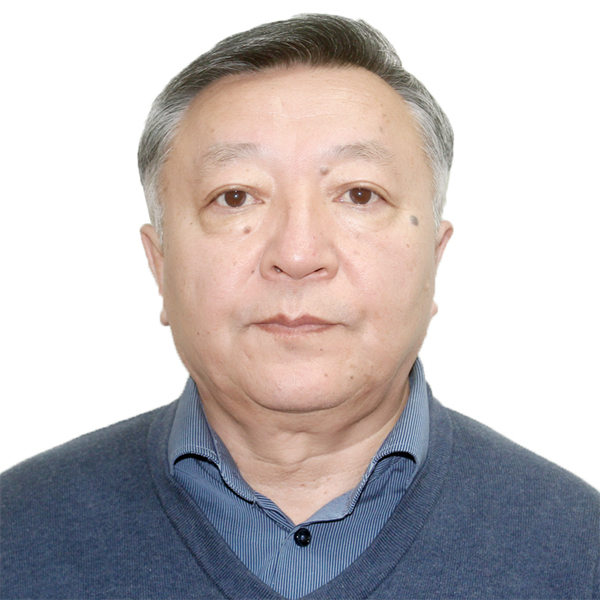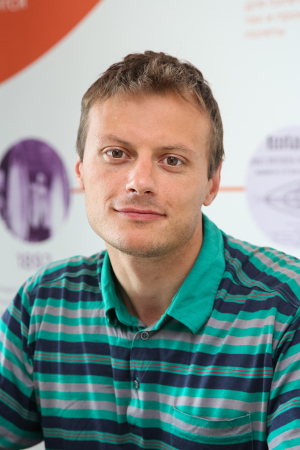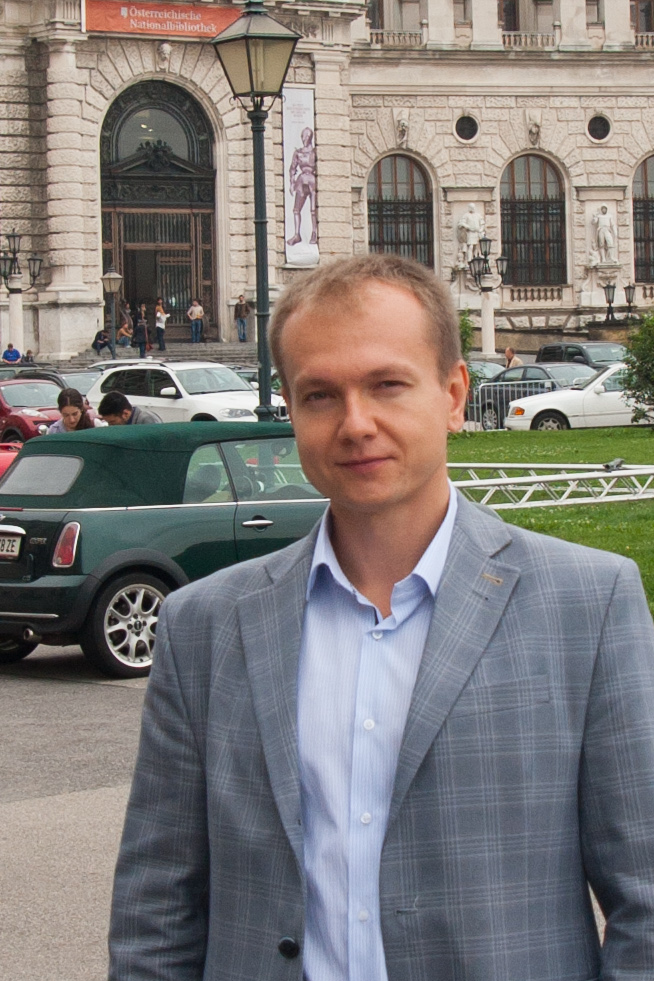Приглашенные докладчики
Пленарные доклады

Жорж Заккур
GERAD, HEC Montréal, Canada
Пленарный доклад:
Coordination in Closed-Loop Supply Chains: A Dynamic Games Perspective
Аннотация
Lack of coordination between the parties involved in a supply chain typically leads to lower outcomes for manufacturers and retailers, and to lower consumer surplus. Further, the collection of past-purchased products at the end of their useful life, for remanufacturing or recycling purposes, is a crucial activity in optimizing operations management and achieving a better environmental performance.
In this talk, I will discuss some coordination mechanisms that could be implemented to improve the efficiency of a closed-loop supply chain, in a context of long-term strategic interactions between the agents and in the presence of demand uncertainties.

Владимир Иванович Марьянов
Professor Emeritus, Department of Electrical Engineering, Pontificia Universidad Católica de Chile and Deputy Director, Instituto Sistemas Complejos de Ingeniería (ISCI.cl), Santiago, CHILE
Пленарный доклад:
Store location and agglomeration in competitive and non-competitive retail
Аннотация
Agglomeration or clustering of stores can be observed in practice in the location of both competitive and non-competitive stores. What makes several shoe stores locate beside each other, or a shoe store locate close to a pants store? Hotelling in 1929 proposed an explanation; however, it only works under very special circumstances. Economists, transport and market researchers have found better explanations to this phenomenon: agglomeration is due to the savings obtained in multiple-stop shopping trips. Amazingly, these trips were only recently included into optimization models for optimal location, and their inclusion indeed changes the prescribed locations.
We study the effect of multiple-stop trips, both multipurpose shopping (MPS) and comparison shopping (CS), on location of retail stores. We analyze follower and (bi-level) leader-follower models for MPS and CS, in which customers use a binary, deterministic choice rule to decide to which store to go to make a purchase, and a MPS follower problem in which customers behave according to a random utility model.
Extensions are discussed.

Александр Нестеров
Доцент: НИУ ВШЭ в Санкт-Петербурге / Санкт-Петербургская школа экономики и менеджмента / Департамент экономики
Заведующий лабораторией: НИУ ВШЭ в Санкт-Петербурге / Санкт-Петербургская школа экономики и менеджмента / Международная лаборатория теории игр и принятия решений
Пленарный доклад:
Matching market design: theory and applications
Аннотация
How do we match supply and demand when standard price mechanisms are not available? Examples include school choice, college admissions, organ allocation, social housing. In these cases, we use matching mechanisms that elicit the agents' preferences and then determine who gets what, so that the outcome is desirable by various standards. In this talk, I introduce the matching theory and present the results addressing the recent methodological difficulty: how to compare different matching mechanisms according to various desirable properties when the standard axiomatic approach is not applicable? I also present a practical case in point: the Russian college admissions system.

Сергей Васильевич Севастьянов
Институт математики им. С.Л.Соболева СО РАН
Пленарный доклад:
Три эффективных метода нахождения близких к оптимальным решений NP-трудных задач дискретной оптимизации (с иллюстрацией их применения к задачам теории расписаний)
Аннотация
Речь пойдёт о трёх довольно универсальных и эффективных методах получения приближённых решений NP-трудных задач. Применение этих методов иллюстрируется в докладе на примерах довольно общих задач Теории Расписаний, хотя, по нашему мнению, эти методы имеют существенно более широкую область применения. Представленыследующие методы:
1. Метод компактного суммирования векторов в шаре (какой-либо нормы) минимального радиуса и метод нестрогого суммирования векторов в заданной области пространства. Применяются в задачах нахождения равномерных распределений многокомпонентных объектов.
2. Применение алгоритмов построения максимального потока и минимального разреза в сети к задачам нахождения равномерных распределений однокомпонентных объектов, с ограничениями общего вида на области распределения объектов.
3. Метод поэтапного сокращения области допустимых решений.

Ярослав Дмитриевич Сергеев
University of Calabria, Rende, Italy
Lobachevsky State University, Nizhni Novgorod, Russia
Пленарный доклад:
Numerical infinities and infinitesimals in optimization
Аннотация
In this talk, a recent computational methodology is described. It has been introduced with the intention to allow one to work with infinities and infinitesimals numerically in a unique computational framework. It is based on the principle ‘The part is less than the whole’ applied to all quantities (finite, infinite, and infinitesimal) and to all sets and processes (finite and infinite).The methodology uses as a computational device the Infinity Computer (a new kind of supercomputer patented in several countries) working numerically with infinite and infinitesimal numbers that can be written in a positional system with an infinite radix. On a number of examples (numerical differentiation, divergent series, ordinary differential equations, fractals, set theory, etc.) it is shown that the new approach can be useful from both theoretical and computational points of view. The main attention is dedicated to applications in optimization (local, global, and multi-objective). The accuracy of the obtained results is continuously compared with results obtained by traditional tools used to work with mathematical objects involving infinity.The Infinity Calculator working with infinities and infinitesimals numerically is shown during the lecture.
Рентсен Энхбат

Institute of Mathematics and Digital Technology
Mongolian Academy of Sciences
Пленарный доклад:
Recent Advances in Sphere Packing Problem
Аннотация
We consider a general sphere packing problem which is to pack non-overlapping spheres with the maximum volume into a convex set. This problem has important applications in science and technology and belongs to a class of global optimization.
In two dimensional case, the sphere packing problem is a classical circle packing problem. It has beenshown that 200 years old Malfatti’s problem [3] is a particular case of the circle packing problem [1,2].
We survey existing theories and algorithms on general sphere packing problems. We also discuss their applications in economics and a mining industry.
References
1. R.Enhbat, Global Optimization Approach to Malfatti’s Problem, Journal of Global Optimization, vol. 65, pp. 33-39, 2016
2. R.Enkhbat, Convex Maximization Formulation of General Sphere Packing Problem,the Bulletin of Irkutsk State University'. Series 'Mathematics' Vol.31, pp.142-149, 2020.
3. Malfatti, G. "Memoria sopra un problema stereotomico." Memorie di matematica e fisica della Societé Italiana delle Scienze 10-1, 235-244, 1803.
Обзорные доклады

Александр Гасников
Московский физико-технический институт
Обзорный доклад:
Markov Decision Process and Convex Optimization

Евгений Александрович Сопов
Сибирский институт прикладного системного анализа имени А.Н. Антамошкина (СибИПСА), Сибирский государственный университет науки и технологий имени академика М.Ф. Решетнева, Красноярск, Россия
Обзорный доклад:
Гиперэвристики автоматизированного синтеза и управления эволюционными алгоритмами оптимизации

